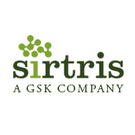Resveratrol Trial In Multiple Myeloma Suspended Due To Safety Concerns

A clinical trial of a proprietary form of resveratrol has been suspended due to safety concerns. The resveratrol-based drug, SRT501, was being studied in a Phase 2 trial with multiple myeloma patients. Phase 2 trials usually are the first clinical trials that look in detail at a drug’s potential effectiveness.
SRT501, which is not yet approved by the Food & Drug Administration, is being developed by Sirtris Pharmaceuticals, a Cambridge, Massachusetts, biotech company. Sirtris was founded in 2004 and acquired in 2008 by the British pharmaceutical company GlaxoSmithKline.
Sirtris describes SRT501 as a “proprietary formulation of resveratrol” with an improved ability to deliver the drug where it is needed in a patient’s body. In the halted clinical trial, SRT501 was to be administered orally once daily. Some of the multiple myeloma patients in the trial were to take SRT501 while also receiving treatment with Velcade (bortezomib). Others were to take only SRT501.
The status of the SRT501 myeloma trial is currently described by trial organizers as “suspended” due to “unexpected safety events.” There is no further information as to the exact nature of the safety events or which patients were affected by the safety issues.
The information about the trial is viewable at the ClinicalTrials.Gov website, which is maintained by the United States National Institutes of Health.
The suspended trial appears to be the first SRT501 trial carried out with multiple myeloma patients. Earlier trials, which were completed without any reports of safety issues, involved either healthy participants, patients suffering from diabetes, or patients with colorectal cancer.
Representatives from GlaxoSmithKline did not respond to email requests from The Myeloma Beacon for further clarification of the issues that led to the SRT501 trial being halted. [See update below.]
News of the SRT501 trial’s suspension was first reported at the blog “In the Pipeline.” For further information on resveratrol's potential as a multiple myeloma treatment, see the Beacon's resource article on the subject.
Update (May 4, 2010; 11:30 a.m.): In response to a Beacon inquiry regarding the suspension of the SRT501 trial, representatives from GlaxoSmithKline provided the following information:
The study in question was being conducted in patients with advanced multiple myeloma. A number of patients developed a complication generally associated with myeloma while on study. New patient enrollment into the study was put on hold while we analyze the data collected to date.
Investigators and regulators in the U.K. and Denmark, where the study was being conducted, were appropriately notified of the decision to temporarily hold further enrollment while determining next steps for this particular trial.
Update (May 5, 2010; 9:45 a.m.): Reports indicate that the SRT501 trial was halted after 24 patients had enrolled in the trial. Of the 24 patients, five developed a kidney condition called cast nephropathy. Cast nephropathy is so commonly associated with multiple myeloma that it is often called "myeloma kidney." It also is one of the main contributors to kidney failure in myeloma patients.
Update (November 30, 2010) - GlaxoSmithKline has decided to halt all further development of SRT501. See the related Myeloma Beacon news story.
Related Articles:
- None Found

It is extremely important to differentiate between this Glaxo drug and natural resveratrol. Unfortunately, this article fails to do so.Even the headline is inaccurate. This is a trial of SRT501, a synthetic analog, not of resveratrol. No safety concerns have been expressed in any human clinical trial to date of resveratrol.
In press releases and on its website, Sirtris describes SRT501 as a "proprietary formulation of resveratrol." The company also has published information on other products it is developing that it describes as analogs of resveratrol -- that is, chemically similar to, but still distinctly different from, resveratrol. SRT501, however, is resveratrol. Yes, it is a proprietary formulation -- and perhaps it is even synthetically produced (although that is not clear). But it is definitely resveratrol rather than some analog of resveratrol. Furthermore, the first paragraph of the article makes very clear what specific formulation of resveratrol was involved in the clinical trial that was halted.
Whether misstating important information in a headline can be considered misleading is everyone's right to question. From a clinical perspective, SRT501 is not resveratrol, rather it is a compound, perhaps even a synthetic compound, the actual composition of which we, the reader, are not informed. Still, the article makes it very clear that SRT501 does not contain resveratrol by itself.
To associate the natural occurring compound resveratrol by a headline with a drug on which it is based is clearly misleading to me. Not only that, the article states that the cause of the trial suspension was a safety condition the cause of which was unknown at the time of publication. Couldn't wait to get the news out, right? The 24 patients for whom this information was really important already knew everything they needed to know. The medical audience you are targeting with the article is best served with factual, accurate information, not the drama implied in both your headline and gist.
Through the updates we learn that the condition the participants developed was the sole reason the trial was halted. Therefore, the author might have been wiser to initially title the article "Multiple Myeloma Trial Suspended" and if you want the dramatic effect "...Due to Safety Concerns." Updating the article a few days later correcting one's earlier error is only an indication that Myeloma Beacon has fallen prey to subjective reporting.
The author clearly lacks sufficient background information regarding the chemical composition and properties of naturally occurring resveratrol versus the (synthetic) compound used in SRT501. Coming back with a comment that "it is definitely resveratrol" doesn't help anyone, it just shows ignorance by the author.
Get new Myeloma Beacon articles by email.